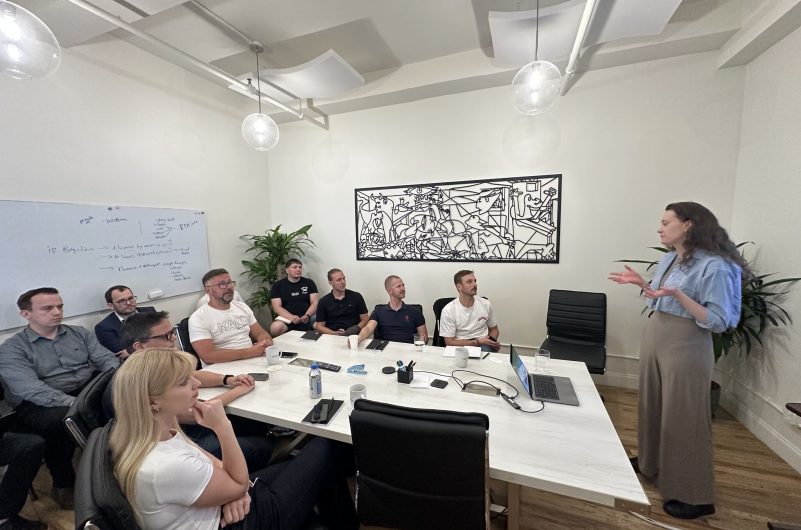As Czech startups expand globally, Czech to English translation and localization have become essential for growth—especially in the SaaS and mobile app sectors. Many Czech companies develop brilliant products but learn quickly that English localization requires more than simply translating UI text. English-speaking users expect different design conventions, clearer onboarding, faster support, and messaging that aligns with their cultural expectations. Without thoughtful adaptation, even the smartest app struggles to thrive in competitive markets like the U.S., Canada, or the U.K.
In this article, we’ll break down how Czech startups successfully adapt their platforms for English-speaking users—covering everything from UI/UX decisions to tone of voice, payment models, customer support, marketing, and onboarding flows. We’ll explore real cases from successful Czech tech companies that expanded internationally and analyze the localization strategies that moved them from Praha to Portland. If you want to understand what it takes to launch a Czech product into English markets, this guide walks you through the entire process step-by-step.
- Translating for Clarity, Not Literal Accuracy
Czech tends to use longer, more descriptive phrases, while English values brevity. A literal translation often feels cluttered in an app interface. Startups rewrite text with a focus on clarity, scannability, and action-driven language. This helps English-speaking users navigate the product intuitively without feeling overwhelmed.
- Localizing UI/UX for Western User Expectations
English-speaking users expect cleaner spacing, simpler menu structures, and more visible call-to-action buttons. Czech apps often adapt layouts, increase whitespace, and restructure navigation to meet Western design norms. This isn’t just aesthetic—it directly affects conversions and user satisfaction.
- Adapting Payment Systems and Subscription Models
Many English-speaking countries rely heavily on credit cards, PayPal, and Apple/Google in-app payments. Czech apps entering these markets must integrate multiple internationally trusted payment gateways. Startups often add clearer refund policies and localized pricing tiers to build trust with new users.
- Changing Tone of Voice for English Audiences
Czech communication style tends to be direct and factual, sometimes coming across as too blunt in English. English-speaking markets prefer friendlier, slightly more conversational microcopy. Startups soften warnings, personalize onboarding messages, and create a warmer tone to align with user expectations.
- Localizing Customer Support and Documentation
Support must be written in natural English—not translated English. Many Czech startups hire native English support specialists or create English-only help center articles. Clear instructions, step-by-step guides, and FAQs significantly reduce support tickets in new markets.
- Translating Legal Pages and Compliance Requirements
Terms of Service, Privacy Policies, and GDPR/CCPA disclosures need specialized translation. Czech to English legal localization becomes crucial here, as wording affects legal liability. Startups often work with bilingual legal teams to guarantee accuracy and compliance.
- Adjusting Marketing, Landing Pages, and Ads
English audiences respond differently to marketing messages. Czech startups often rewrite headlines to be more benefit-driven and less technical. They may also adjust branding to match Western humor, tone, or emotional triggers. This shift dramatically boosts conversion rates when entering English markets.
- Localizing Onboarding Flows and Tutorials
Onboarding is one of the most sensitive areas for localization. English-speaking users expect quick results, minimal reading, and visual guidance. Startups simplify tutorials, shorten instructions, and incorporate more icons and tooltips to reduce friction during setup.
- Handling Time Zones, Measurements, and Localization Settings
English-speaking markets use different formats for dates, currency, time, and units. Startups implement automated localization settings so users see the correct formats instantly. This reduces user confusion and builds trust in the product.
- Conducting English-Specific User Testing
Startups gather English-speaking testers to evaluate tone, clarity, and ease of use. They analyze confusion points, bounce rates, and misinterpretations unique to English users. These localized insights lead to more intuitive design updates.
Conclusion
For Czech startups dreaming of global reach, successful expansion into English-speaking markets begins with smart localization. Czech to English translation alone isn’t enough—apps need UI adjustments, tone-of-voice changes, onboarding improvements, marketing rewrites, and specialized support. By studying Western user expectations and adapting strategically, Czech startups build products that feel native rather than translated. This seamless experience increases trust, boosts conversions, and allows promising apps to compete in major markets like the U.S. or U.K.
If you’re building a SaaS platform or mobile app in the Czech Republic, now is the perfect time to invest in strong localization processes. With the right approach, your product can move far beyond Praha and thrive in Portland, Toronto, Sydney, or anywhere English-speaking users live online. Start by refining your tone, simplifying your UX, and testing your product with real English users—and watch your global footprint grow.
FAQs
- Why is localization more than translation for Czech startups?
Because design, tone, support, and marketing must all match English-speaking expectations. - What’s the biggest localization mistake startups make?
Translating literally and ignoring UX differences that English-speaking users expect. - Do Czech apps need different pricing for English markets?
Yes—localized pricing increases trust and conversions. - Should startups hire native English speakers for support?
Absolutely; it improves clarity and builds user confidence. - How important is English user testing?
It’s essential for identifying friction points that Czech teams may overlook.


